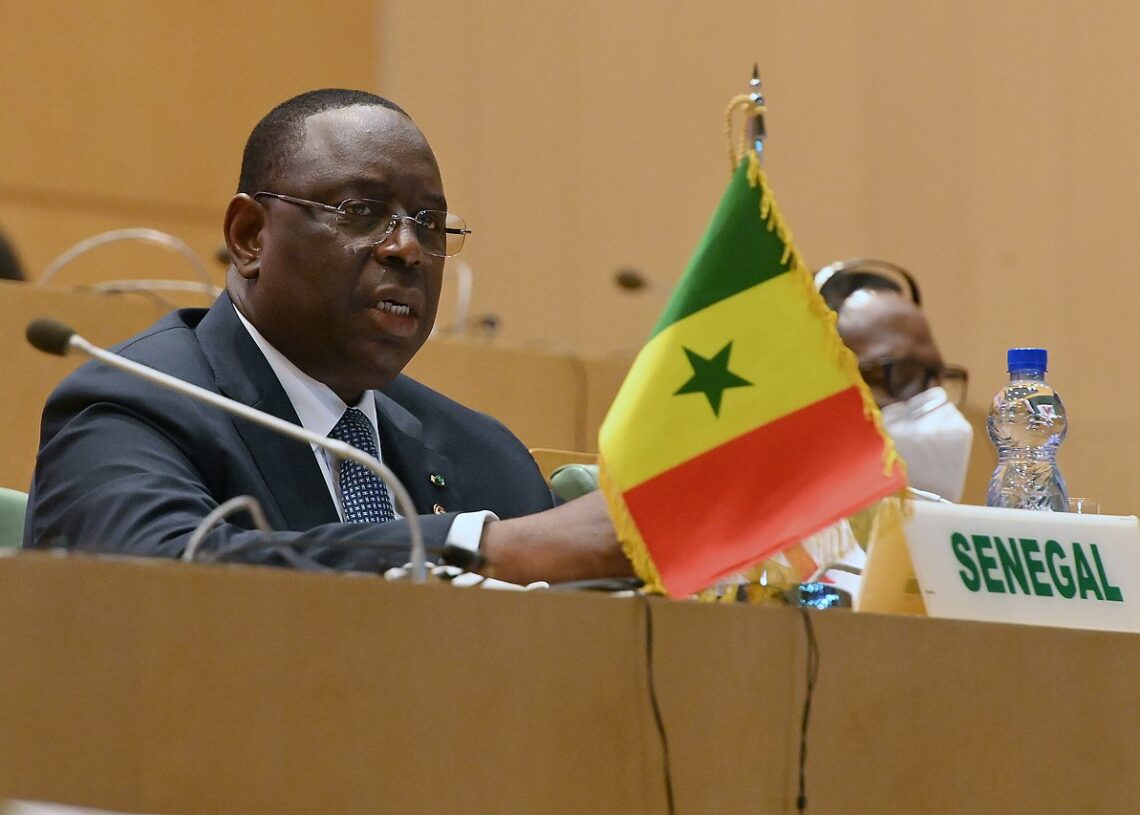In a televised interview on Thursday, Senegal’s President Macky Sall confirmed that he would step down from office when his term ends on 2 April. However, he did not announce a new date for the presidential election, which has been postponed from its original date of Sunday and has sparked deadly protests across the nation.
President Sall emphasized that the election date would be determined through political negotiations involving all sides. To initiate these talks, a “national dialogue” is set to commence on Monday, bringing together representatives from the government, the opposition, and civil society.
The president cited insufficient time to organize a fair and transparent election by the original deadline, but assured that the outcome of the national dialogue would address the situation if a delay was deemed necessary. In a gesture of goodwill, he expressed his willingness to release Ousmane Sonko, a prominent opposition figure whose arrest had sparked nationwide protests last year.
Since the Senegal Constitutional Council ruled President Sall’s decision to postpone the election unconstitutional last week, several of his opponents have been released from custody. Nevertheless, critics argue that the absence of a new election date fuels suspicion that the delay is merely a stalling tactic by the president. The opposition has vowed to continue protesting until a specific date is announced, putting pressure on President Sall.
Having served two terms as Senegal’s leader since his first election in 2012, President Sall initially pledged not to overstay his tenure. However, his televised interview has done little to restore the country’s reputation as a stronghold of democracy in a region marked by authoritarian rule and coup d’états.
Senegal, known for its stability and democratic credentials, has regularly held peaceful and transparent elections. Consequently, the president’s decision to delay the election and the subsequent protests have raised concerns both domestically and internationally about the country’s commitment to democratic principles.
The Senegalese population, aware of the country’s history and stability, hoped for a seamless transition of power without any interruptions. The postponement, coupled with the absence of a new election date, has triggered fears that President Sall may attempt to extend his rule indefinitely, igniting speculation of a potential constitutional crisis.
International observers, including the United Nations and regional bodies such as the African Union, have called for a swift resolution to the political impasse in Senegal. They have stressed the importance of respecting the will of the people and the rule of law in order to maintain the country’s democratic standing.
The start of the national dialogue on Monday will be a crucial moment to build consensus among political actors and find a way forward. It presents an opportunity for all sides to discuss and agree upon a new election date that would satisfy both the government and the opposition, ensuring a fair and transparent process.
As Senegal navigates this delicate phase, the eyes of the international community remain fixed on the country. How the authorities handle this situation will undoubtedly have implications not only for the future of Senegal but also for the broader African region, where the safeguarding of democratic processes and institutions is of paramount importance.
Image Credit: IAEA Image bank





